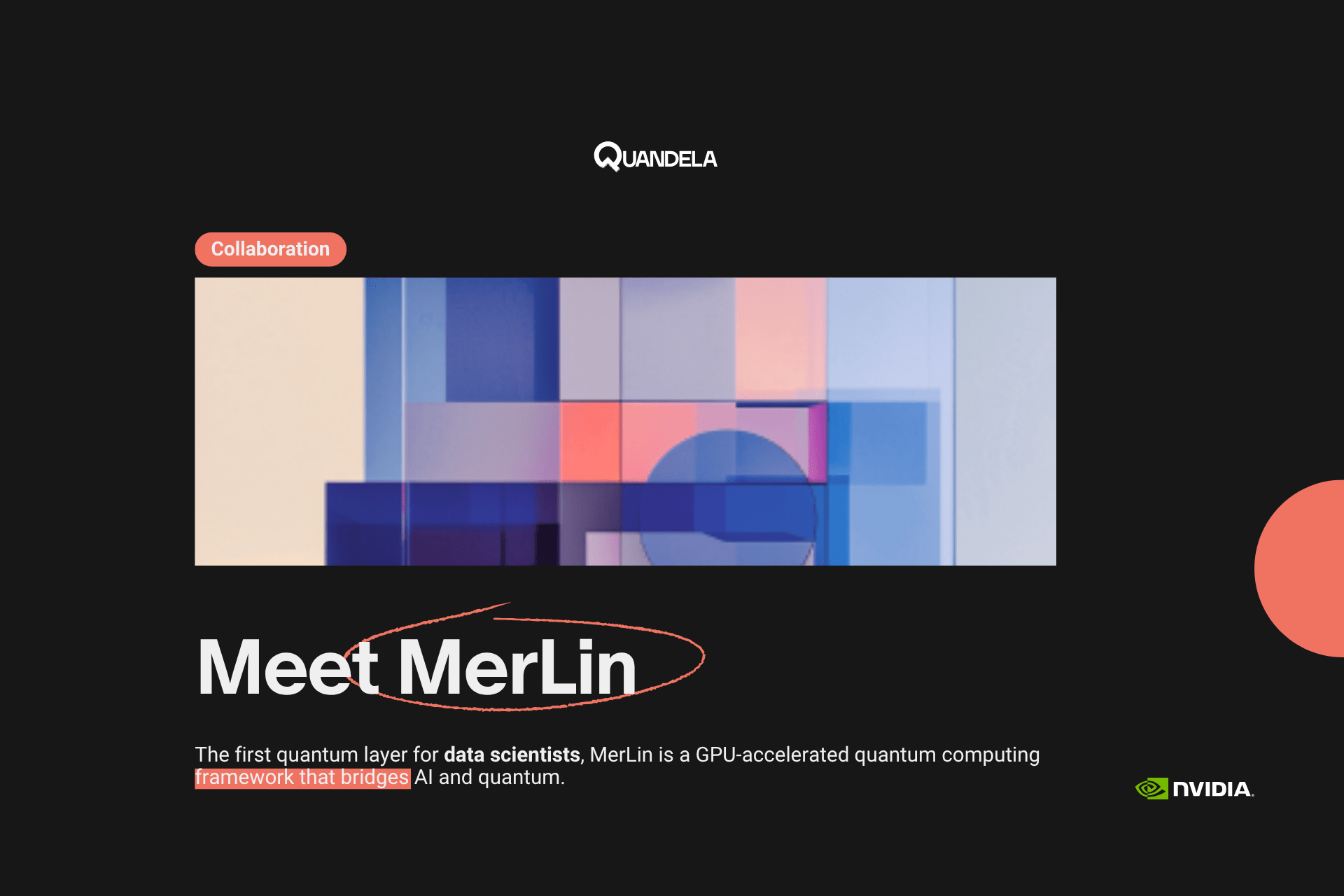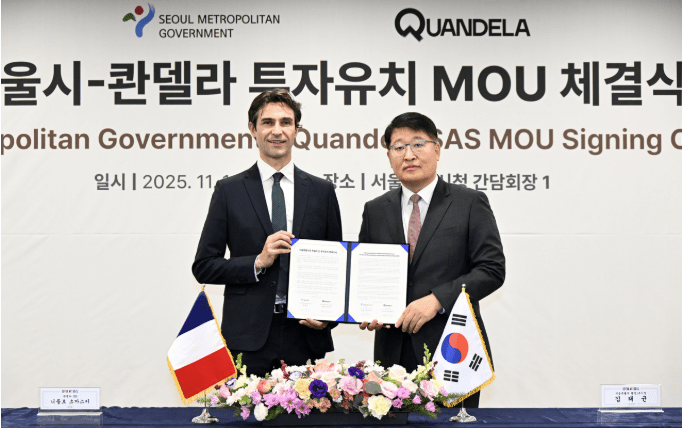Launching at GTC Paris, MerLin democratizes quantum machine learning by integrating with classical AI tools—backed by GPU-accelerated performance
Paris, France – June 11th – Today, Quandela announces MerLin, a groundbreaking quantum computing framework designed for and by AI data scientists. Set to debut at NVIDIA GTC Paris, MerLin redefines quantum machine learning (QML) with a GPU-first approach, enabling researchers to simulate and benchmark algorithms beyond the limits of today’s quantum hardware.
Quantum Meets AI: A Collaborative Future
MerLin positions itself as the “quantum layer for data scientists” – contrasting with other quantum machine learning tools that target quantum scientists. By abstracting quantum complexity into familiar workflows (e.g., PyTorch/scikit-learn integrations), MerLin empowers AI practitioners to prototype hybrid quantum-classical models in hours, not months. Early adopters – including teams from the Perceval Quest, and researchers from Mila, NYUAD’s QML Lab and Scaleway – are collaborating with us to leverage MerLin and bridge classical and quantum workflows.
“Quantum shouldn’t demand a PhD to use,” said Niccolo Somaschi, co-founder & CEO of Quandela. “MerLin gives data scientists a GPU-accelerated gateway to quantum advantage while ensuring their work remains compatible with real hardware today—and tomorrow. By integrating benchmarks and noise-aware validation, we’re addressing a critical gap: the lack of reproducible metrics in hybrid algorithm research.”
“Powerful simulation tools are essential to develop better algorithms and accelerate the path to broad quantum advantage”, said Sam Stanwyck, Group Product Manager for quantum computing at NVIDIA. “MerLin solves a critical ecosystem need by opening the door for the broader research community to develop with photonic quantum circuits.”
Key Innovations
- GPU-Optimized Simulators:
- Leveraging NVIDIA CUDA-Q, MerLin delivers high-performance simulation for photonic quantum circuits, enabling tests for hardware that doesn’t yet exist (e.g., 24+ qubit systems).
- Benchmark-Driven Progress:
- MerLin establishes reproducible metrics for hybrid algorithms, addressing the “benchmarking gap” in QML research—where thousands of papers lack standardized comparisons.
- Integrated with Quandela Cloud, it enables immediate validation of GPU-optimized algorithms on real photonic hardware, studying noise impact and scalability.
- Targets pragmatic use cases like quantum-enhanced kNN, GANs, and variational algorithms—backed by hardware-aware compilation.
- Photonic-First, Future-Proof:
- Designed for today’s photonic QPUs (e.g., Perceval-based systems) but architected to adapt to next-gen hardware.
- Features like dynamic circuit recompilation ensure code scalability across hardware generations.
Who Uses MerLin?
- AI/ML Practitioners: Prototype quantum layers without rewriting classical pipelines.
- Quantum Researchers: Access photonic-specific tools (e.g., boson sampling) with GPU-accelerated simulation.
- Enterprises: Pilot hybrid quantum-AI workflows with clear ROI benchmarks.
“MerLin allowed us to adapt existing algorithms to a photonic-native format within a short timeframe. The platform offered useful comparative insights that contributed to our ongoing research and publication efforts”, said Dr. Louis Chen, an early user, Research Associate at the Quantum Centre of Imperial College London (Imperial QuEST) and participant in the most recent Perceval Quest.
Availability & Strategic Vision
MerLin will be freely accessible to accelerate adoption, with enterprise tiers for advanced features. The roadmap includes:
- Q2 2025: Stable PyTorch/scikit-learn APIs.
- 2026+: Support for 24+ qubit photonic systems.
Learn More: merlinquantum.ai




